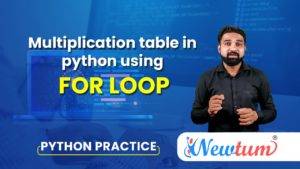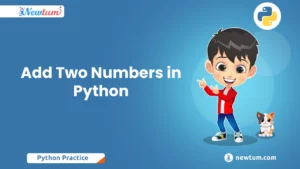C++ expressions are combinations of variables, literals, and operators that evaluate to a value; statements are complete instructions (often ending with ;) that perform actions using expressions. In C++, you write expressions inside statements, using syntax rules (operators, precedence, semicolons) to perform operations.
Understanding C++ expressions and statements is crucial for beginners, as misuse often causes compile errors. Clear syntax reduces bugs, improves readability, and builds a strong foundation for mastering advanced programming concepts.
Key Takeaways
- Expression → A construct combining variables, constants, and operators that evaluates to a value.
- Statement → A full instruction that often ends with
;and may contain expressions. - Operators & Precedence → Define how expressions are formed and the order in which they are evaluated.
- Syntax Rules → Govern semicolons, braces, and declarations allowed within blocks.
- Common Errors → Missing semicolons, ambiguous grouping with parentheses, or incorrect operator usage.
What is a C++ Expression?
What counts as an expression (variables, literals, operators)
Expressions are formed using variables, constants (literals), and operators. They always evaluate to a value, which may be used further in statements or other expressions.
Types of expressions (arithmetic, logical, relational, assignment, function calls)
- Arithmetic expressions → Perform mathematical operations (
a + b,x * y). - Logical expressions → Combine conditions using
&&,||,!. - Relational expressions → Compare values (
x > y,a == b). - Assignment expressions → Assign values (
x = y + 5). - Function call expressions → Invoke functions (
max(a, b)).
What is a C++ Statement?
Expression-statements vs compound statements
- Expression-statement → An expression followed by
;(e.g.,x = 5;). - Compound statement → A group of statements enclosed in braces
{ ... }, treated as one block.
Selection, iteration, jump statements
- Selection →
if,switch. - Iteration →
for,while,do-while. - Jump →
break,continue,return,goto.
How Expression and Statement Syntax Works in C++
Semicolon usage – when mandatory, empty statements
- Each statement typically ends with
;. - Empty statements are allowed (just
;on its own).
Blocks and braces – compound statements
- Blocks
{ }let you group multiple statements as one.
Operator precedence and associativity in expressions
- Determines the order of evaluation in complex expressions.
Examples of Expressions & Statements
Simple arithmetic expressions inside statements
In C++, arithmetic expressions like a + b or x * y are often part of statements. For example:
#include <iostream>
using namespace std;
int main() {
int a = 10, b = 5;
int sum = a + b; // expression inside statement
cout << "Sum = " << sum << endl;
return 0;
}
Here, a + b is the expression, and the entire line int sum = a + b; is the statement.
Assignment expressions used in other expressions
Assignments can also be used as expressions that evaluate to a value. This allows chaining or embedding inside other expressions.
#include <iostream>
using namespace std;
int main() {
int x, y = 3;
int z = (x = y + 2) * 4; // assignment expression used in another expression
cout << "x = " << x << ", z = " << z << endl;
return 0;
}
Output:
x = 5, z = 20Expression statements that do nothing (e.g., y + z;)
Sometimes, an expression followed by ; is allowed but has no effect unless its value is used.
#include <iostream>
using namespace std;
int main() {
int y = 2, z = 3;
y + z; // valid expression-statement, but result unused
cout << "y = " << y << ", z = " << z << endl;
return 0;
}
This compiles but does nothing with y + z;. Such “do-nothing” statements are valid but usually indicate an error or oversight.
When Syntax Errors Happen & How to Avoid Them
Missing semicolon
Every statement in C++ must end with ;. Forgetting it causes compile-time errors:
int x = 5 // ❌ Missing semicolon
Fix:
int x = 5; // ✅ Correct
Using statements incorrectly inside expression contexts
Statements cannot appear where only expressions are allowed. For example:
int x = (int y = 10); // ❌ invalid: statement inside expression
Instead, declare first, then use:
int y = 10; int x = y;
Misunderstanding precedence and using parentheses
Without parentheses, operator precedence may give unexpected results:
int result = 10 + 5 * 2; // evaluates as 10 + (5*2) = 20
Fix with parentheses:
int result = (10 + 5) * 2; // = 30
Parentheses improve clarity and reduce bugs caused by precedence rules.
C++ Code Concepts
cpp #includeint main() { int a = 5, b = 3; int sum, difference, product, quotient, remainder; // Expression to calculate sum sum = a + b; // Expression to calculate difference difference = a - b; // Expression to calculate product product = a * b; // Expression to calculate quotient quotient = a / b; // Expression to calculate remainder remainder = a % b; std::cout << "Sum: " << sum << std::endl; std::cout << "Difference: " << difference << std::endl; std::cout << "Product: " << product << std::endl; std::cout << "Quotient: " << quotient << std::endl; std::cout << "Remainder: " << remainder << std::endl; // Conditional statement example if (a > b) { std::cout << "a is greater than b" << std::endl; } else { std::cout << "a is not greater than b" << std::endl; } // Loop statement example for (int i = 0; i < 5; ++i) { std::cout << "Loop iteration: " << i << std::endl; } return 0; }
Explanation of the Code
The provided C++ program is a simple example demonstrating various expressions and statements. Here's a breakdown of what the code does:
- First, it includes the
iostreamlibrary to use input and output operations.Within themain()function, two integers,aandb, are defined with values 5 and 3, respectively.Then, variables to store the results of arithmetic operations (sum, difference, product, quotient, remainder) are declared.The program calculates these values using basic arithmetic expressions and assigns them to the respective variables.It outputs the results of each arithmetic operation usingstd::cout.A conditional statement checks ifais greater thanb, printing an appropriate message.Aforloop runs five times, outputting the loop iteration number each timeFinally, the program returns 0, indicating successful execution.
Output
Sum: 8
Difference: 2
Product: 15
Quotient: 1
Remainder: 2
a is greater than b
Loop iteration: 0
Loop iteration: 1
Loop iteration: 2
Loop iteration: 3
Loop iteration: 4
Harnessing 'C++ Expressions and Statements' in Real World Applications
int pictureLoadTime = userPhotos / serverSpeed;if (searchKeyword && !irrelevantData)
{
displayResults();
}colour = (redValue * alpha) + (greenValue * (1-alpha));C++ Interview Queries
Coding can be thrilling, yet perplexing, especially when diving into the specifics of C++ Expressions and Statements. Here’s a list of some of the most frequently asked questions from curious minds on platforms like Google, Reddit, and Quora. Stick around, and you might just discover the answers to those lingering C++ questions you've had in your mind.
- What’s the difference between expressions and statements in C++?
Expressions are combinations of variables, operators, and values that produce a result, whereas statements are complete units of execution that can include expressions. Consider the following example:
int a = 5; // This is a statement a + 3; // This is an expression - Can you explain how operator precedence affects expressions?
Operator precedence determines the order in which operators are evaluated in an expression. For example, multiplication takes precedence over addition:
The multiplication happens first, followed by addition.int result = 3 + 5 * 2; // result is 13, not 16 - Are there statements that can contain multiple expressions?
Yes, the ‘if’ statement is an example. It evaluates an expression to decide whether to execute a block of code:
if (a + b > 10) { // Expression a + b > 10 // Code block } - How do expressions affect program performance?
Complex expressions can lead to inefficient execution. Breaking them into simpler expressions can enhance readability and performance. - What are lvalues and rvalues in an expression?
In C++, an lvalue refers to a location with identifiable storage (like a variable) while an rvalue refers to data value itself:
int x = 10; // x is an lvalue, 10 is an rvalue - How do logical operators work in expressions?
Logical operators, such as && (AND) and || (OR), combine expressions. They short-circuit, meaning evaluation stops as soon as the result is clear. - What’s the consequence of missing semicolons in statements?
In C++, statements must end with a semicolon. Missing one often leads to syntax errors and unexpected behaviour. - Can expressions modify variables?
Yes, expressions can include assignment operations, altering variable values directly:
x = x + 1; // Increments the value of x by 1
Remember, understanding expressions and statements profoundly impacts how effectively and efficiently you write code in C++. Don't skip the foundational stuff—it’s what sets you up for coding success!
Our AI-powered cpp online compiler lets you instantly write, run, and test your code with ease. There’s no need for lengthy setup processes; the AI handles everything, offering an efficient, user-friendly experience for both beginners and seasoned programmers. Explore the future of coding seamlessly!
Conclusion
"C++ Expressions and Statements" lays the foundation for writing efficient, logical code, empowering you with real-world problem-solving skills. Why wait? Dive in, experiment, and master your programming skills. You'll boost your coding confidence and explore more languages with Newtum today!
Edited and Compiled by
This article was compiled and edited by @rasikadeshpande, who has over 4 years of experience in writing. She's passionate about helping beginners understand technical topics in a more interactive way.



